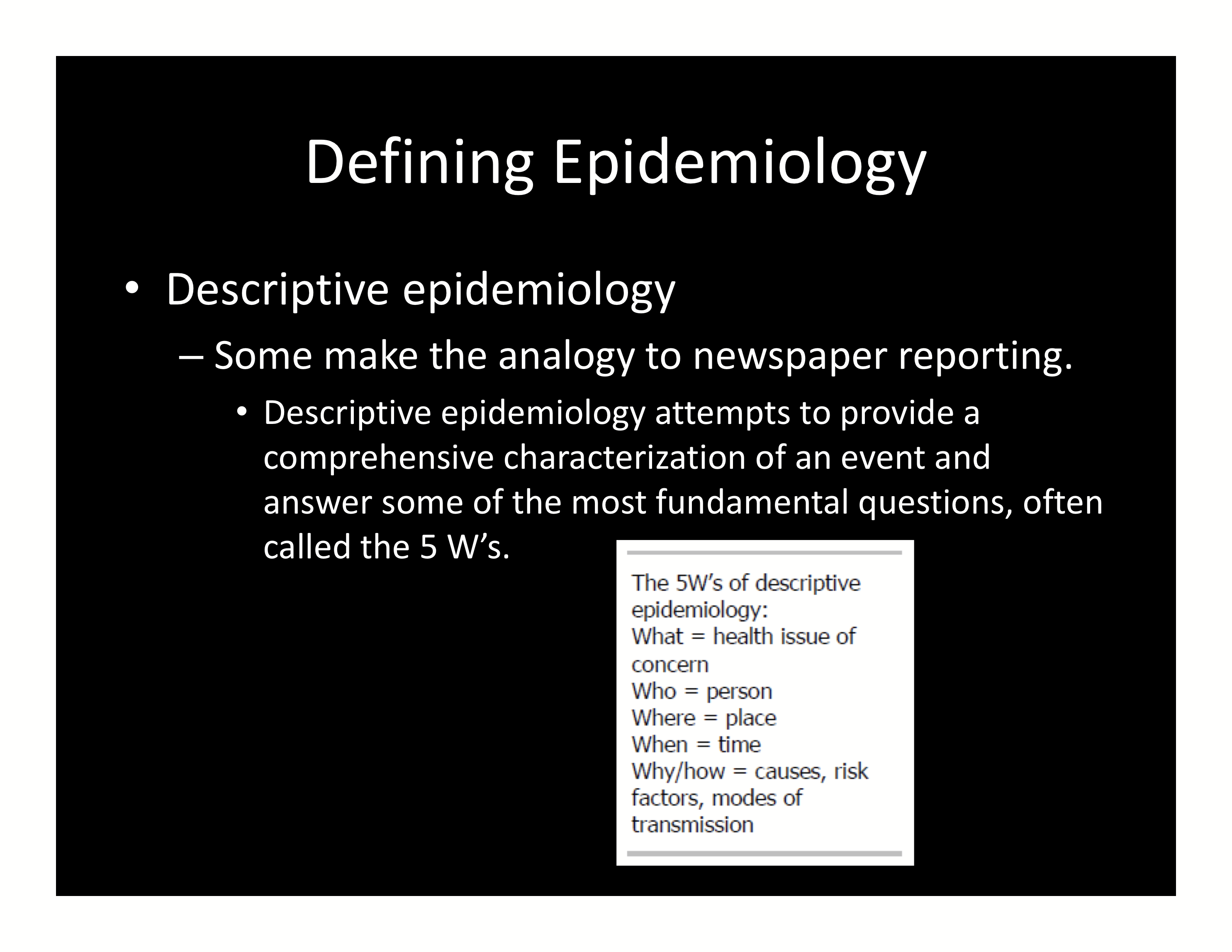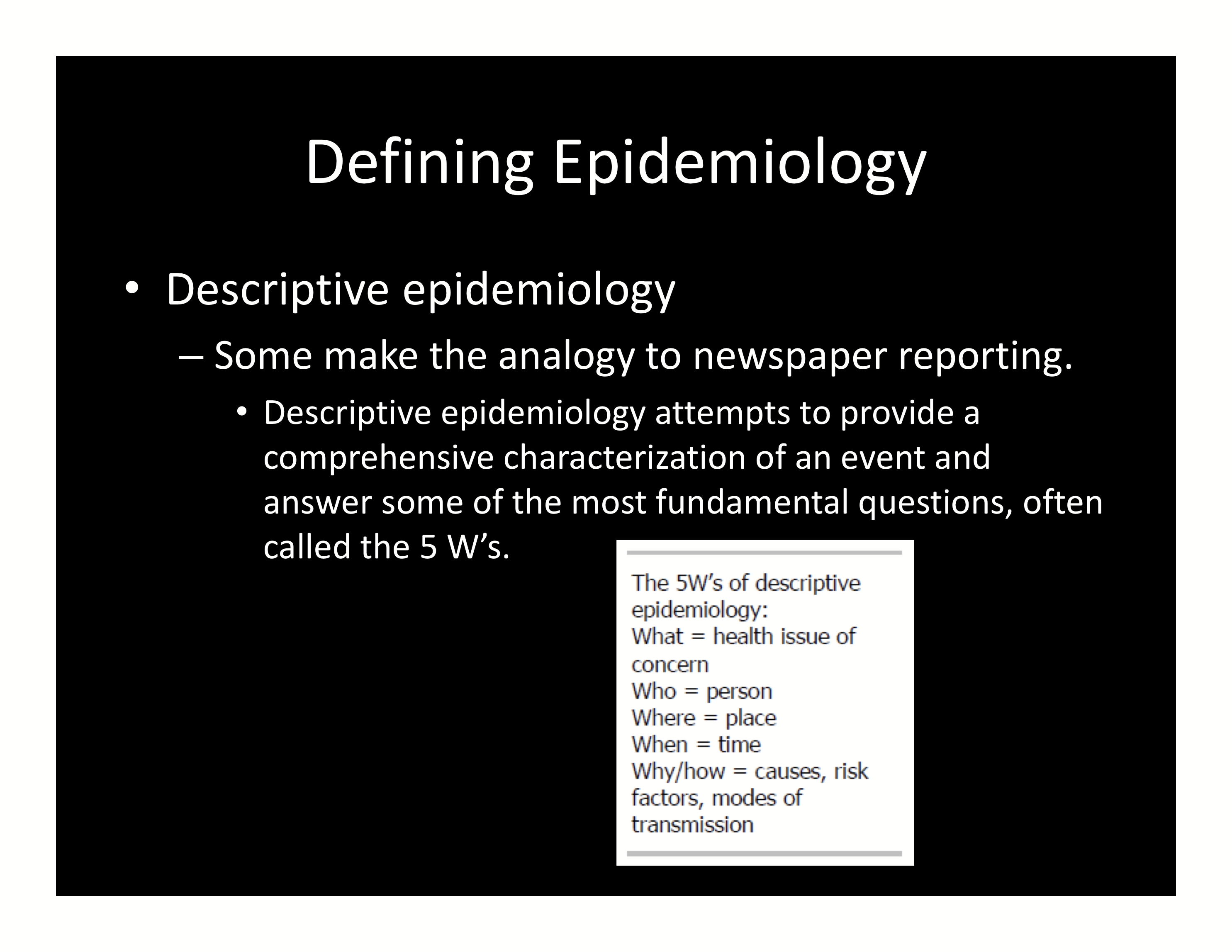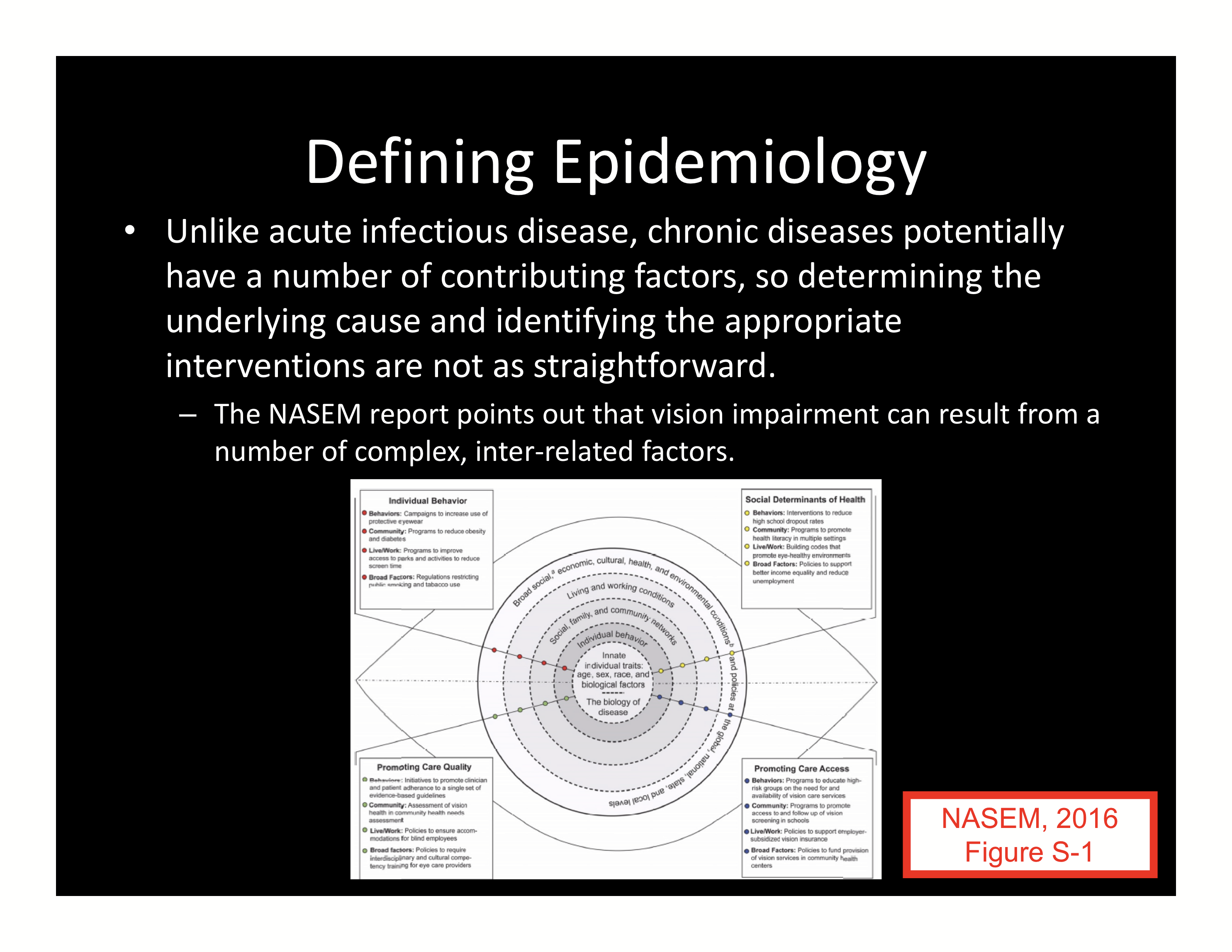Define Epidemiology
1/18
There's no tags or description
Looks like no tags are added yet.
Name | Mastery | Learn | Test | Matching | Spaced |
|---|
No study sessions yet.
19 Terms
What is epidemiology?
The study of the distribution and determinants of health-related states or events in specified populations, and the application of this study to the control of health populations
What is epidemiology reliant on?
Epidemiologic methods tend to rely on careful observation and use of valid comparison groups to assess whether what was observed differs from what might be expected.
What is epidemiology concerned with?
Frequency and pattern of health events in a population
What does frequency refer to in epidemiology?
It refers to the number of health events, but also the relationship of that number to the size of the population.
What does pattern refer to in epidemiology?
It refers to the occurrence of health-related events by time, place, and person
What are determinants?
The causes and other factors that influence the occurrence of disease and other health-related events
Do illness occur randomly in a population?
No, epidemiologists believe the illness occurs when the right accumulation of risk factors or determinants exist in an individual.
What are the 2 branches of epidemiology?
Descriptive epidemiology
Analytic epidemiology
What does descriptive epidemiology focus on?
Characterizing health events by time, place, and person.

What are the time attributes in descriptive epidemiology?
They assess whether disease occurrence is regular or unpredictable.
What are the place attributes in descriptive epidemiology?
They examine the geographic extent of the problem and its geographic variation.
What are the person attributes in descriptive epidemiology?
Factors such as age, sex, race, biological traits, acquired characteristics, activities, and living conditions (e.g., socioeconomic status or access to health care).
What is the focus of analytic epidemiology?
Comparisons between groups, seeing if a certain condition or group is at risk for developing a condition when compared to a control group
How can analytic epidemiology studies be further broken down into?
observational studies: cohort, case-control, and cross-sectional studies
experimental studies: clinical trials and community trials
What do descriptive epidemiology focus on?
Who, where, when, why/how

What do analytic epidemiology focus on?
Why and How of events
How is the “Father of Modern Epidemiology”?
John Snow
What did John Snow do?
John conducted public health surveillance and found that the water supply was a potential source of cholera. He was able to convince the British government that the source of cholera was water contaminated with sewage instead of toxic air.
What makes determining the contributing factors for chronic diseases more difficult than acute infections?
Chronic diseases potentially have a number of contributing factors, so it makes it very difficult to identify the appropriate interventions.
